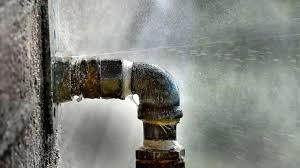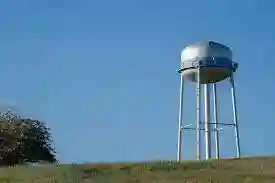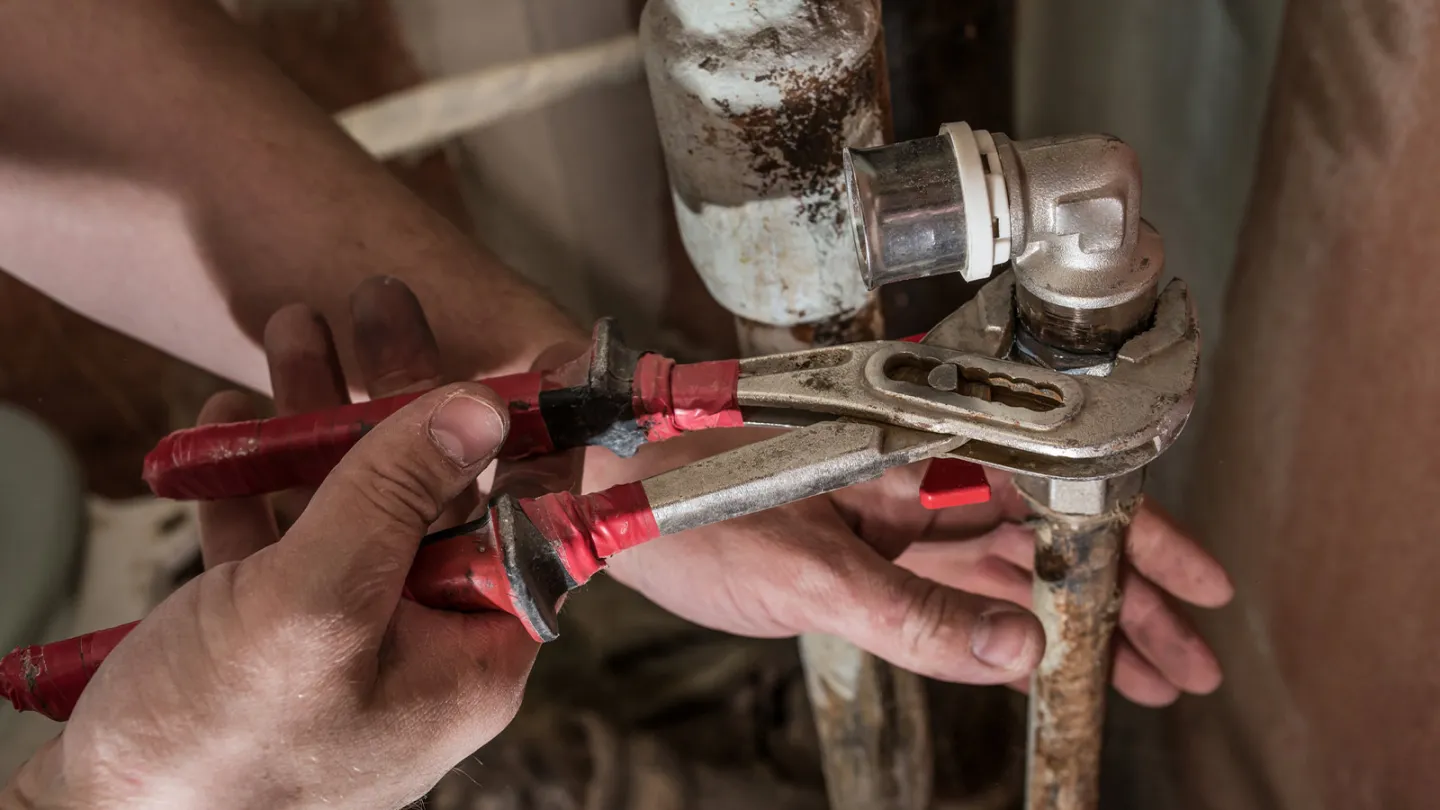When your kitchen floor starts misting and you hear a sinister drip, you know it: a burst pipe. You hear a hiss, see a puddle—and your stomach drops. In Orange, NSW, where frost bites winter mornings and old clay or galvanised pipes lurk behind walls, pipe bursts are all too common. That’s why understanding Burst Pipe Repairs in Orange is so important. But before panic sets in, take a breath: in this post I’ll walk you through common causes of pipe bursts in Orange, what it might cost to fix them, how long repairs take, and smart tips to prevent repeat disasters. By the end you’ll know when a DIY band-aid will do and when to call a licensed plumber, saving both your sanity and wallet.
What Causes Burst Pipes in Orange Homes?
Frozen water expands: when pipes freeze, they crack from the inside. In Orange’s frosty winters (average July lows around 1–2°C), even indoor pipes can freeze and burst if uninsulated. Insurers report that during cooler months, “on average, claims for burst pipes increase” due to freezing and water expansion. Ageing infrastructure is another culprit: old copper, clay or galvanised steel pipes corrode or develop weak joints over decades. Rust and scale build-up—especially in wetter periods—can eventually give way under pressure.
Tree roots and ground movement can hit pipes from the outside. Roots are attracted to any leak; once they infiltrate joints, “blockages add more pressure on pipes, which may lead to a burst”. In Orange’s rich soils, expanding clays or minor earth movements sometimes stress buried pipes, causing tiny cracks to suddenly split. Finally, water hammer or high water pressure can burst poorly secured pipes in any season – a violent pressure spike (like a pump surge) is like a shake-up for your plumbing.
Knowing these causes helps you act fast—and highlights why timely Burst Pipe Repairs in Orange are so critical to avoiding long-term water damage.

What Do Burst Pipe Repairs in Orange Cost?
Repair costs vary widely. According to plumbing guides, a minor leak fix (think a leaking joint or small hole) often runs a few hundred dollars. In contrast, swapping out a whole damaged section of pipe could be several times more (one estimate: $500 for a moderate replacement, and up to $1000+ for extensive work). Emergency call-outs (nights/weekends) often add a premium – typically 50–100% surcharge. And don’t forget wall repairs: if you have to cut into walls or ceilings, plaster and paint costs can easily add another $200–$600 or more (often thousands for major water damage).
| Type of Repair | Estimated Cost (AUD) |
|---|---|
| Minor leak (e.g., join fix) | $150 – $350 |
| Pipe section replacement | $300 – $800 |
| Emergency (after-hours) callout | $500 – $1,200 |
| Wall/plaster repair (post-fix) | $200 – $600+ |
These ranges are ballpark – final price depends on your situation. Factors that can raise the bill include: an internal pipe deep in the wall vs. an exposed one, the type of pipe (copper is pricier than PVC), and how much demolition is needed. Plus labor rates in regional areas can be slightly lower than metro Sydney, but after-hours or holiday fees still apply. If you rent or live in a strata unit, check if the leak is in a common pipe; otherwise, look at your insurance policy for coverage. Many home insurers do cover sudden burst pipe damage (but typically not gradual deterioration), so document the break and call them early.
Expert tip: Always get a detailed quote. A pro plumber will price the job after assessing pipe accessibility, materials, and any water damage. Never be shy to ask “what’s included”—emergency fees, plumbing parts, and clean-up should all be clear before work starts.
How Long Does a Burst Pipe Repair Take?
The clock starts ticking the moment you spot a leak—but thankfully, burst pipe repairs are often quicker than you’d think. A simple fix (like a visible crack or leaking joint) can often be wrapped up in 1–2 hours. That usually involves shutting off the water, cutting out the damaged section, and reconnecting the pipe.
But if the problem pipe is hidden—say, under concrete, behind a wall, or beneath your bathroom tiles—it gets trickier. In those cases, burst pipe repairs in Orange homes can stretch into 3–6 hours or more, especially when you factor in the drying of soaked materials, cutting into drywall, or waiting on plaster to dry.
Drywall demolition and restoration? That alone could add days. If you hire a specialist restoration team to fix the moisture damage, the total repair timeline might stretch into several days or even weeks, depending on humidity levels and materials affected.
And don’t forget the regional factor: In Orange, plumbing supplies are usually quick to source, but for older homes, a rare fitting might need to be ordered—causing delays.
👉 Real-case: One homeowner shared how a burst pipe behind their kitchen wall took two plumbers half a day just to access and replace, followed by two more days of drying before the wall could be patched. “It’s the unseen damage that kills time,” they told us—a solid reason not to delay when you first spot signs of a leak.

Smart Fixes to Prevent Future Pipe Bursts
Once the crisis is over, it’s time to get proactive. A few simple upgrades can save thousands and headaches down the track:
- Install pressure-limiting valves: These go near the main valve and cap household water pressure at a safe level. Since excess pressure can stress pipes, this valve protects your plumbing network.
- Insulate vulnerable pipes: Wrap any uninsulated pipes in garages, attics or exterior walls with foam or fiberglass pipe insulation before winter. Even bathroom or laundry pipes benefit from a layer of insulation in the cold.
- Replace old piping: Older galvanised steel or clay pipes eventually rust or crack. Experts recommend swapping those out for modern PVC or flexible PEX piping. PEX (cross-linked polyethylene) is light, easier to install, and resists corrosion, making future bursts far less likely.
- Yearly plumbing check-ups: Have a licensed plumber inspect your system annually, ideally before winter. They can spot corrosion, loose joints or hidden leaks that you might miss. Early fixes (like tightening fittings or replacing a worn valve) cost far less than emergency repairs.
- Upgrade stormwater and drainage: In Orange’s wet months or during town floods, ensure your gutters and stormwater drains are clear. Overflow or backflow can saturate ground pipes. Consider adding check-valves on sewer or storm lines to prevent flooding into your home.
Think of these as your plumbing insurance policy. As one home-insurance expert notes: preventing leaks by maintaining your pipes can “save you thousands of dollars” later.
DIY or Call the Plumber? Know Your Limits
Sometimes an impatient “duct-tape fix” feels urgent, but knowing when to tug in an expert is key.
You might be able to DIY if:
- The leak is easily reachable (e.g. a visible outdoor tap or a garage hose bib).
- It’s daytime and you have basic tools. For instance, small cracks can be temporarily sealed with rubber padding and hose clamps, or with plumber’s epoxy putty, just to stop the water flow until help arrives.
You should call a licensed plumber if:
- Water is pouring from walls, ceilings or underground: These require cutting open walls or digging foundations – not a homeowner job. Hidden leaks can worsen structural damage if botched.
- Multiple leaks or signs of serious damage: If you have bubbling paint, bulging wallpaper, or a drop in water pressure with no obvious leak, it’s likely bigger.
- Safety or compliance issues: Any plumbing connected to your gas or electrical fittings (e.g. a hot water system leak) mandates a professional. In NSW it’s also a legal requirement to get a licensed plumber for most plumbing work.
- Insurance claims: When dealing with insurance, documentation matters. A licensed plumber’s report can be crucial to validate your claim. Most insurers insist on professional repairs for a burst-pipe payout.
Quick fix tip: Turn off water at the mains as soon as you spot a burst. Open the lowest tap in your home to drain the lines. You can try a temporary patch (like a rubber hose and clamp) to hold things until a plumber arrives, but remember it’s just a stop-gap.
For rules and licensing in NSW, you can check resources like NSW Fair Trading on plumbing licences. When in doubt, call an Orange plumber. They’ll use leak detectors or thermal cameras to locate the break, then give you a quote.
Orange Note: Always verify your plumber’s licence – NSW law requires them to be licensed for pipework. A local plumber familiar with Orange’s older homes and Council regs can save time.
Eco-Friendly and Long-Term Solutions
Sustainable plumbing is on the rise in Australia, so why not apply green solutions here too? Consider these smart, long-term upgrades:
- Rainwater and greywater systems: Capturing rainwater (roof runoff) in a tank can reduce pressure on mains supply and give you free water for gardens and toilets. Similarly, greywater diverters can channel shower water to the garden (check local regulations first). Less tap water flow means lower risk of damaging surges during droughts.
- Switch to PEX piping: As noted, PEX is not only durable but has a smaller environmental footprint than metal. It’s more flexible (fewer joints, less leak risk) and waste is minimal in installation.
- High-efficiency fixtures: Low-flow taps and showerheads decrease overall flow and pressure, easing strain on plumbing.
- Regular water audits: Use leak detectors or smart meters (like infrared leak scanners) yearly – catching tiny drips early prevents big floods and is eco-friendly by saving water.
- Proper insulation: Beyond pipes, insulate your home so you can keep a lower baseline temperature in winter. That way pipes won’t freeze even if it’s cold outside.
By thinking ahead, you not only avoid bursts but also cut your water bill and carbon footprint. Local sustainability programs (e.g. the Aussie YourHome water efficiency guide) outline legal ways to reuse water and upgrade fixtures.
Local Plumbing Services in Orange
One big advantage of living in Orange: local plumbers. Hiring a plumber from Orange & surrounds often means faster response times (they’re on your streets already) and intimate knowledge of local issues (maybe that corner house has the same old pipes as yours). Many Orange plumbers advertise 24/7 emergency support—you’ll likely find someone available nights or weekends. As one Orange plumbing company puts it, their mission is “reliable, affordable, high-quality solutions” for locals.
To vet your plumber, here’s what to do:
- Check licences and reviews: Look up their NSW plumber licence number, and read Google reviews. Are previous customers happy with how they fixed burst pipes?
- Ask for pricing details: A reputable plumber will give you a (ballpark) quote or at least a clear call-out fee. Beware of vague answers.
- Emergency availability: If you suspect a serious leak (like at night), confirm if they can come out immediately and what after-hours fees apply.
- Get multiple quotes: For non-urgent fixes, you can shop around with 2–3 local plumbers to compare costs and scheduling.
Being local also means they’re accustomed to Orange’s water quality and council rules. If any upgrades require Council approval (for example, major plumbing alterations), a local plumber will know the drill. In short, don’t be shy about leaning on your community’s trade; find a trusted Orange plumber and establish a relationship before disaster strikes.
Council & Insurance: Who’s Responsible?
For water supply pipes, it generally goes like this: you (the homeowner) are responsible for everything from the meter inward, and the Council or Water Authority handles anything up to that meter. So if a burst pipe occurs on the street-side main or right at the meter, it’s usually the Orange City Council’s problem. But once the water enters your property—running to a tap, toilet, or garden valve—it’s on you to fix. In practical terms, call the council only if the leak is outside your boundary, near the meter, or affecting neighbouring properties.
Need confirmation? The official guidelines are laid out in this council resource:
📄 Orange City Council – Sewer Infrastructure Services (PDF)
Now let’s talk insurance. In NSW, burst pipe repairs in Orange are often covered if the damage was sudden and accidental—not due to long-term neglect. So if a pipe freezes, splits, and floods your laundry? That’s usually a claim. But a slow leak that’s rotted out your subfloor? Not so much.
✅ Documentation is everything:
- Snap clear photos of the burst pipe and any damage.
- Hire a licensed Orange plumber and keep their invoice and compliance certificate.
- Call your insurer before starting non-urgent repairs.
A repair certificate often smooths the claim process—and some councils even reimburse plumber’s fees if the water main was at fault.
Pro tip: Ask your insurer directly—“Is a burst pipe covered under my current policy?” Many will say yes, but exclusions can include age, neglect, or extreme weather events. Don’t assume. Confirm.
A Burst Pipe Is a Bump, Not a Disaster
Burst pipes feel terrifying, but remember: you’re not the first Orange homeowner to deal with this. Summing up, common causes are cold winters, old pipes, tree roots, and pressure spikes. Fixing one might cost a few hundred to a couple thousand dollars depending on damage, and can often be done in a day or less (except for drying/rebuilding time). The smart moves are early detection and prevention: insulate pipes, install pressure valves, and schedule annual inspections.
When in doubt, call a pro. A licensed plumber in Orange will quickly locate the leak (even behind walls), stop the damage, and advise on the best fix. They’ll handle permits and insurance paperwork too. And once the immediate threat is over, use the incident as motivation: upgrade any weak spots (like swapping out rusted copper for PEX, adding a water hammer arrester, etc.) so you won’t repeat the experience.
Whether it’s a frozen joint or a sudden rupture, burst pipe repairs in Orange don’t have to be overwhelming. You got this—every drip is fixable. Got a leak that won’t wait? Call your local licensed plumber in Orange before a small drip becomes a disaster. In the meantime, keep calm, shut off the water, and remember that expert help is just a phone call away.
FAQs
What causes burst pipes in Orange?
Cold winters (frost can freeze water inside pipes), invasive tree roots, old or corroded pipes (like galvanized or clay), and high water pressure are common culprits. In Orange’s soil, ground shifts can also stress buried lines over time.
How do I know if a pipe burst behind my wall?
Watch for damp spots or stains on walls/ceilings, peeling or bubbling paint, musty odors, and sudden drops in water pressure. You might even hear a faint hissing or dripping sound inside the wall. These signs often mean a hidden leak.
Can I claim burst pipe repairs on home insurance?
Often yes – most policies cover sudden burst-pipe damage, provided it’s not due to negligence. Make sure to document the damage (photos) and call your insurer promptly. Keep receipts and repair reports. Policies vary, so check the terms.

